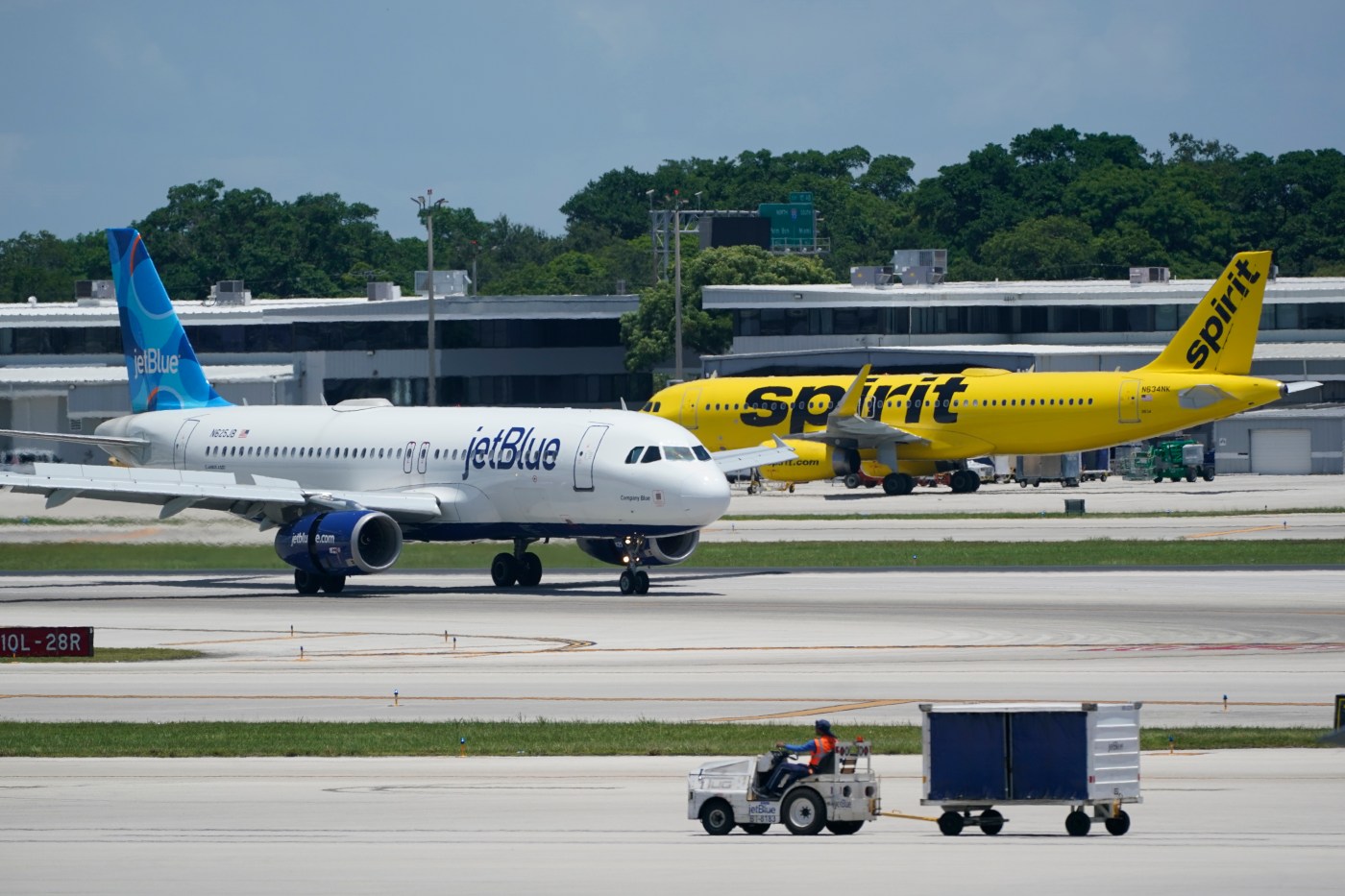
JetBlue: Spirit deal vital to compete
A lawyer for JetBlue Airways said Tuesday that the biggest U.S. airlines are using their size to cement their dominance in a post-pandemic world, making it critical that a federal judge allow JetBlue to buy Spirit Airlines.
The lawyer, Ryan Shores, said JetBlue needs Spirit to be a “viable challenger” to the four airlines that control most of the domestic air-travel market.
“That mandate is even more urgent today,” Shores said during closing arguments in a federal court trial over the U.S. Justice Department’s lawsuit to block JetBlue’s $3.8 billion purchase of Spirit, the nation’s biggest low-fare carrier.
A Justice Department lawyer argued that the deal would push fares higher by 30% and leave fewer options for travelers on a budget.
Edward Duffy said if JetBlue absorbs Spirit, it would cut the ultra-low-cost-carrier share of the market by half — or 6 million fewer budget flights per year.
Duffy said JetBlue was contradicting itself by arguing that because of its smaller size it needs Spirit to grow fast enough to challenge the bigger airlines, while also claiming that even smaller low-cost rivals such as Frontier Airlines would have no trouble growing fast enough to replace Spirit’s presence in the market.
“And most tellingly, they have invited the court to look past the harms caused to passengers who can’t pay for JetBlue’s richer experience,” Duffy said.
There is no jury in the trial, which has stretched over several weeks and included testimony by the CEOs of both airlines. A ruling from U.S. District Judge William Young was not expected Tuesday.
During the closing arguments, the judge peppered JetBlue and Spirit lawyers with questions.
Young, who was nominated for the federal bench by President Ronald Reagan in 1984, asked Shores how long it would take for consumers to see benefits that JetBlue promises the merger will deliver, such as more competition with the bigger airlines.
The JetBlue lawyer suggested that it could be two or three years, “after the market has arrived at its post-merger competitive equilibrium.”
Previous administrations allowed a series of mergers that consolidated the industry to the point where four carriers – American, Delta, United and Southwest – control about 80% of the domestic air-travel market. The Justice Department filed lawsuits to extract concessions in some of those earlier mergers, but JetBlue-Spirit is the first one that has gone to trial.
Some Wall Street analysts have recently suggested that JetBlue is paying too much for Spirit, which has struggled to recover from the pandemic, and believe it should renegotiate the deal. JetBlue has given no indication that intends to do so, however.
If it wins in court, JetBlue will nearly double its fleet, repaint Spirit’s yellow planes and remove some of the seats to make them less cramped, like JetBlue planes.


